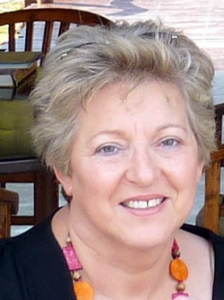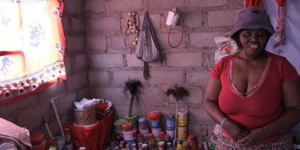In South Africa’s Eastern Cape, mentor mothers — HIV-positive women turned health workers — are transforming rural maternal care, proving that peer support can bridge critical healthcare gaps.

In one of South Africa’s poorest districts, a remarkable healthcare transformation is taking place through an innovative peer-support program. One to One Africa employs HIV-positive women as “mentor mothers” to support pregnant women and new mothers in 39 villages across the OR Tambo district, where over 90% of residents live far from basic services.
These mentor mothers, identifiable by their bright green t-shirts, tackle multiple health challenges. They track infant growth, ensure vaccination compliance, and critically, help HIV-positive pregnant women maintain their antiretroviral treatment regimens. The program’s effectiveness is evident in dramatically reduced mother-to-child HIV transmission rates.

The organization recently launched a mobile clinic that serves 80-120 people daily across 20 communities. “One to One Africa is committed to empowering communities and ensuring equitable access to healthcare,” said Gqibelo Dandala, Executive Director at One to One Africa, in the organization’s press release about the mobile clinic launch.
The initiative addresses critical gaps in the Eastern Cape’s healthcare system, where early newborn death rates are among the country’s highest and childhood immunization coverage sits at just 75%. Working closely with the Department of Health, One to One Africa has trained 27 government health workers in their mentor mother model, with plans to train 3,000 more to reach up to 450,000 people.
“Before, I would just give a child deworming and check their card to see if they’ve been to the clinic. But now I can do more things, like give education on nutrition and take their blood pressure,” said Bukiwe Mpaceka, a community health worker, in an interview with Bhekisisa.
Research supports this peer-support approach: In rural Nigeria, women receiving mentor mother support were five times more likely to maintain viral suppression six months after giving birth compared to those with standard care.
As headman Sigcau of Mankosi village told Bhekisisa, highlighting the program’s transformative impact: “You won’t find a child born with HIV or malnourished in this village — because of the mentor mothers.”
Read more about the One to One Africa program in this article by Zano Kunene from November 7, 2024 in Bhekisisa:
Watch this video from July 2023 about the One to One Africa program:
Related Articles

From Personal Crisis to National Mental Health Lifeline: The Story of SADAG’s Founder
Zane Wilson transformed her experience with panic disorder into South Africa’s largest mental health support network, creating the South African Depression and Anxiety Group, which now operates 30 helplines and supports over 180 support groups nationwide.

Study That Empowers Traditional Health Practitioners to Test for HIV Expands in Rural South Africa
The NIH 5-year, $2.8m grant to Wits University and Vanderbilt University will advance traditional health practitioner-initiated HIV testing.
